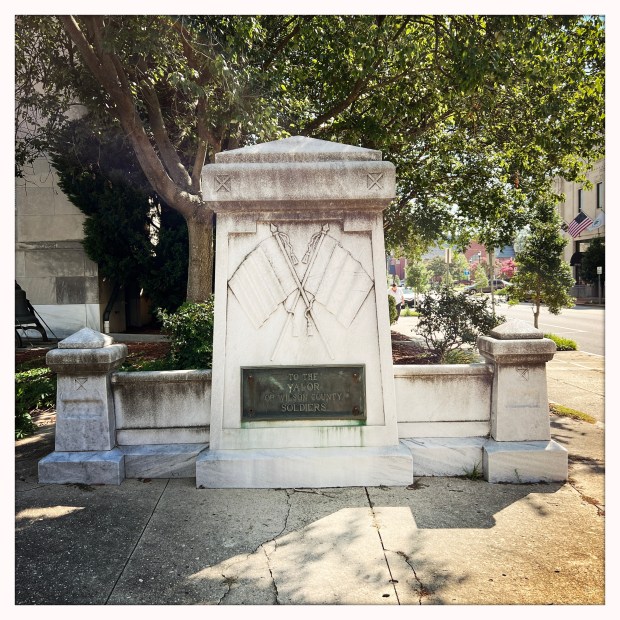Also this week, a rally in downtown Wilson to demand removal of the Confederate monument on the grounds of the county courthouse. For more about the structure, see here, here, here, here and here.
Wilson Daily Times, 3 May 2024.
[Update, 11 May 2024: days after this protest, the Confederate battle flag on the monument was defaced with dark spray paint. The police quickly identified and arrested a 58 year-old white man on misdemeanor property damage charges. Per the Wilson Times: “When asked if the county will clean the monument, Wilson County Manager Ron Hunt said no plans have been made as commissioners continue their research regarding the memorial.” (I’m here for this unbothered response.) Photo below courtesy of the Times‘ 7 May 2024 edition.






















